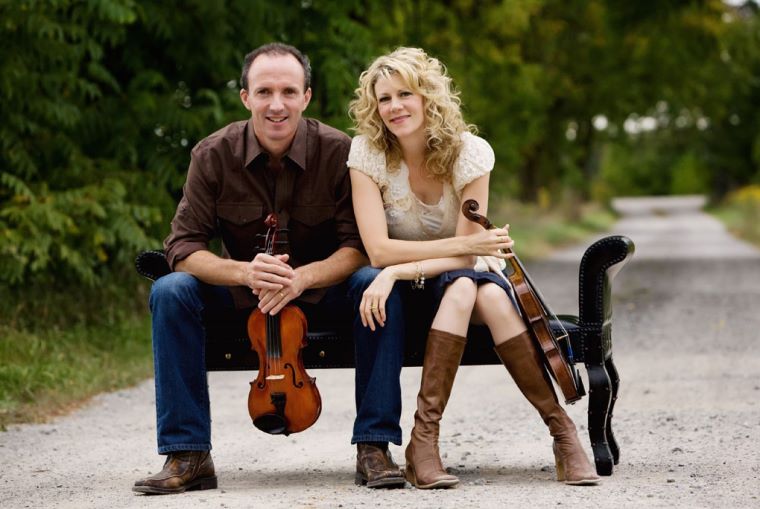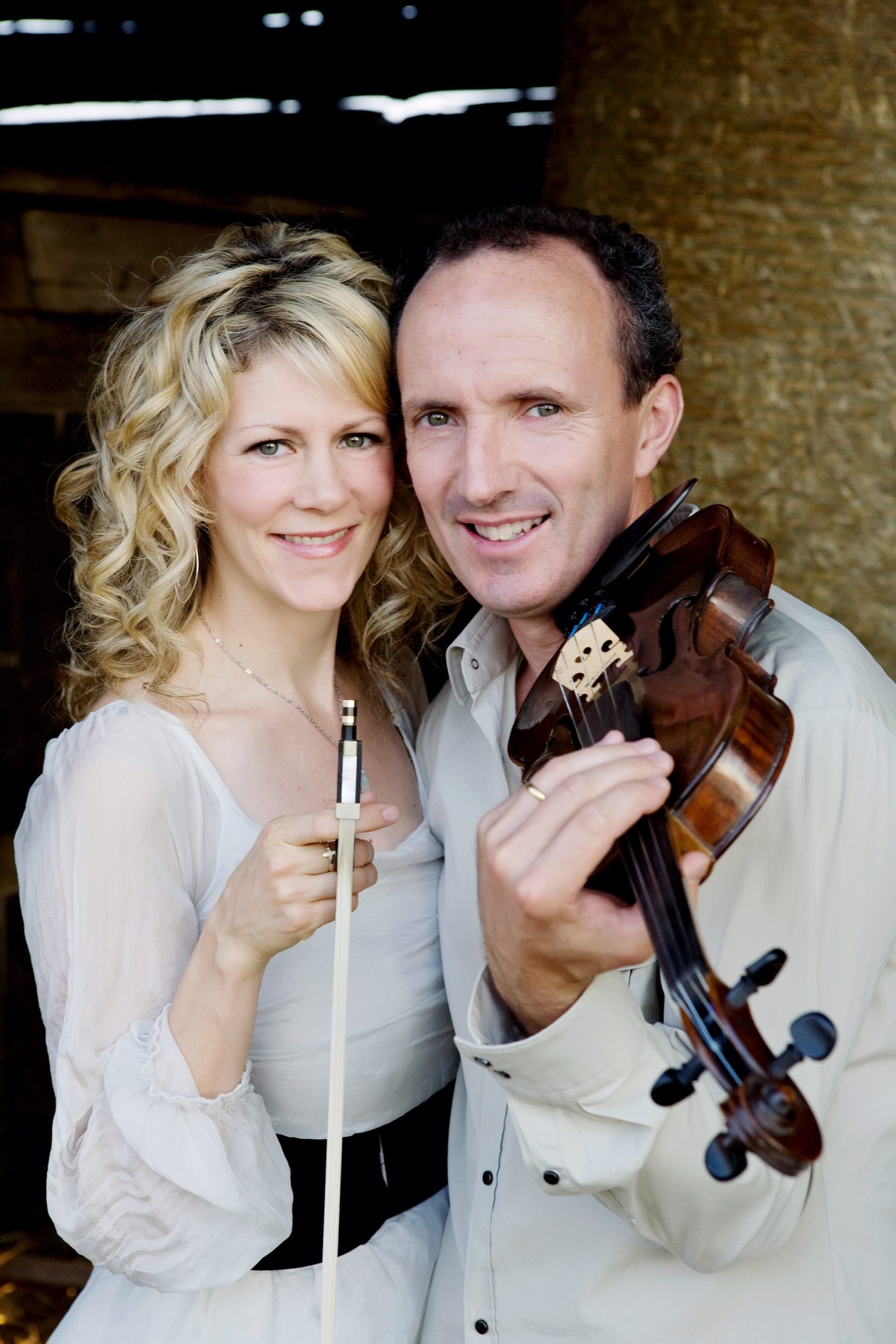
The entertainment world is filled with extraordinary stories. Few, however, match the beguiling true-life tale of Natalie MacMaster and Donnell Leahy, Canada’s reigning couple of Celtic music, whose dazzling career achievements underpin an incomparable off-stage life.
Indeed, when two of the planet’s very best fiddle players married in 2002, the proverbial mantelpiece was instantly crammed with Juno Awards and East Coast Music Awards. Though MacMaster and Leahy followed different trajectories – she, a Cape Breton native who could step-dance before she could walk; he the oldest brother of acclaimed family group Leahy – both had assuredly crested the traditional music peak. Their first recorded collaboration, 2015’s Bob Ezrin-produced album One, which was followed by 2016’s A Celtic Family Christmas (and which cemented the couple’s status as powerhouses on the seasonal circuit) confirmed MacMaster and Leahy were as dynamic working together as they were working apart.
That is no small feat when your combined album sales exceed one million, and when past collaborators include classical cellist Yo-Yo Ma, bluegrass star Alison Krauss, and banjo ace Béla Fleck; and when your ecstatic fan base (which boasts Shania Twain and The Chieftains) stretches from Sydney, Nova Scotia to Sydney, Australia.
“The fiddle was definitely common ground for us when we first got together,” MacMaster, a Member of Order of Canada since 2006, recalls with a chuckle. “But I was so in awe of Donnell’s family, of 11 siblings who could play and had a family band. And here I am now doing almost exactly the same thing. Well, kind of.”
MacMaster is referring to her and Leahy’s six musically gifted children, who today are the centerpiece of the MacMaster/Leahy live set though not because the couple necessarily envision showbiz careers for Mary Frances, Michael, Clare, Julia, Alec, and Sadie.

Rather, the pair realized early on that being on the road without their kids was infinitely harder than touring with them. That the children were already being home schooled (MacMaster has a teaching degree) made enacting that decision easier.
“Initially we were reluctant to let the kids perform. We worried the expectations might be too much,” Leahy says. “But then one night we put Mary Frances on stage. Soon after that Michael wanted to play. And you must reward practice.
“When I was a kid, I played the fiddle for my parents and my brothers and sisters. But you need to get into the game at some point. For me, the game was playing house parties. Our kids are practicing and when they come out on stage and do their little number, it’s their reward. They feel like a part of the tour and that provides amazing gratification.”
When vintage comedian W.C. Fields famously quipped, “Never work with animals or children,” he clearly hadn’t seen the MacMaster/Leahy clan fiddling, step-dancing and positively delighting audiences, something a planned documentary should bring gloriously to light… whenever that gets made.
“We need to make the documentary a priority,” Leahy laughs. “We are just so busy.” When the project is completed, it will be a fitting bookend to The Leahys: Music Most of All, a short by filmmaker Peter Weyman, whose vivid depiction of the touring musical sibs won an Academy Award for Best Foreign Student Film in 1985.
It is easy to understand why Weyman – and later, MacMaster – was so enchanted with the Leahys. Their rich familial history is the stuff of lore.
“My father’s people came to Canada in 1825 from County Cork, Ireland where they were farmers before settling in a little town called Douro,” Leahy explains. “My father was a beef farmer – we grew up on a beef farm and it’s in our blood. Two of my brothers and I continue to run and grow the farm.”
Both MacMaster and Leahy point to the 120-acres of ancestral lands in Lakefield, Ontario, as yet another key component of their children’s education and development. “Teaching can take many forms,” MacMaster says.
Of course, the globe-trotting Leahys aren’t exactly like every other cattle farmer out there. “We put our bulls out with the cows based on our tour schedules so we can have people home for calving!” Leahy howls. “It’s a big part of our lives and we want it to be a big part of the kids’ lives, too.”
He continues: “Running the farm is grounding and a great complement to life on the road. Plus, we believe in work and the farm is a wonderful place for the kids to learn through their chores.”
Perhaps ironically, blending their personal lives proved much easier for MacMaster and Leahy than merging their highly distinctive Celtic-rooted musical styles, which explains why the One album arrived more than a decade after their wedding even though the pair played together often.

“With Donnell, I had to listen more deeply to subtleties in his music so that I wouldn’t muscle over them,”
MacMaster continues: “I also had to try and roll with his rhythm. Having said that, I still play in my Cape Breton style. Only about 40 percent of our show is us playing together. The other 60 percent is arrangements where we each take turns or are playing alone.”
MacMaster pauses and reflects. “This whole thing – first playing music by myself, then playing music with Donnell, then touring with Donnell and the children and all of us playing music together – has evolved in a very natural way.
“We do wrestle with fears about touring with the children – are they getting enough home life? But we also feel incredibly lucky to be together as a family and to be letting our children develop their musical talent.”
Adds Leahy, “I think the thing I am most proud of is Natalie. She’s a musical star but her commitment to her family and to me is a side nobody gets to see. She’s so giving. It’s never ‘no’ with her.”
True-life stories in the entertainment world (or anywhere) don’t come more remarkable than that.




















Leave a Comment